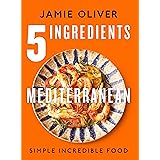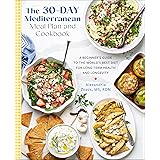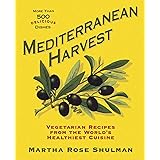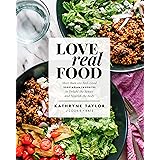The world of nutrition can often feel like a dizzying maze, especially with countless social media trends and fad diets constantly vying for our attention. One nutrient that consistently finds itself in the spotlight is protein. From claims of needing massive amounts for muscle gain to restrictive diets promoting only animal products, it’s easy to get lost in the “protein hype.” The video above, featuring insights from Weight Watchers International’s Michelle Cardel, cuts through the noise to answer a crucial question: how much protein do you really need?
Far from advocating extreme measures, experts like Cardel emphasize that a truly healthy diet is all about balance. While protein is undeniably a vital component, it’s just one piece of a much larger, more complex nutritional puzzle. Understanding your individual needs and integrating protein harmoniously with other essential nutrients is key to unlocking optimal health.
The Protein Paradox: More Isn’t Always Better
Protein plays a foundational role in nearly every bodily function. It’s the building block for our muscles, enzymes, hormones, and even parts of our immune system. Regularly consuming adequate protein helps you build and maintain muscle mass, supports recovery, and can contribute to feelings of fullness, aiding in weight management.
1. Despite these undeniable benefits, the prevailing narrative often overemphasizes protein to the detriment of other equally important nutrients. Michelle Cardel astutely notes that “if protein has the best PR team in nutrition right now, fiber is really the unsung hero.” This analogy perfectly captures how much attention protein receives compared to other essential elements of a balanced diet.
2. The truth is, while protein is crucial, simply consuming vast quantities isn’t necessarily better. Your body has a limit to how much protein it can effectively utilize at any given time, and excess protein can be stored as fat or simply excreted. Think of your body as a well-oiled machine; you need the right amount of high-quality fuel, but overfilling the tank doesn’t make it run faster or more efficiently.
Understanding Your Daily Protein Needs
Determining your ideal protein intake isn’t a one-size-fits-all calculation. As highlighted in the video, factors such as age, body composition, activity level, and specific health goals all play a significant role. However, there are general guidelines that can serve as an excellent starting point for most adults.
A Baseline for Sedentary Adults
For adults who lead a more sedentary lifestyle, a good rule of thumb is to aim for approximately 1 gram of protein per kilogram of body weight. This recommendation ensures that your body has sufficient protein to perform its essential daily functions, from cell repair to maintaining lean muscle mass.
Let’s put this into perspective: for someone weighing 150 pounds, this translates to about 68 grams of protein each day. To convert pounds to kilograms, you simply divide your weight in pounds by 2.2 (150 lbs / 2.2 ≈ 68 kg). This baseline is like the essential foundation of a house, providing the necessary support for everyday stability.
When Your Protein Needs May Be Higher
Certain individuals may benefit from a higher daily protein intake to meet specific physiological demands or achieve particular health and fitness goals. These groups include:
- More Active Individuals: Those who engage in regular, intense exercise, particularly strength training, need more protein to repair muscle tissue and stimulate new muscle growth. Their bodies are undergoing greater stress and require more raw materials for recovery and adaptation.
- Older Adults: As we age, our bodies become less efficient at utilizing protein to build and maintain muscle, a condition known as sarcopenia. A higher protein intake can help combat this age-related muscle loss, preserving strength, mobility, and overall quality of life.
- Individuals Seeking Weight Loss: Protein is highly satiating, meaning it helps you feel fuller for longer, which can reduce overall calorie intake. It also has a higher thermic effect of food (TEF) compared to carbohydrates and fats, meaning your body burns more calories digesting it.
- Those Looking to Build or Preserve Muscle: Whether you’re an athlete aiming for hypertrophy or someone simply trying to maintain muscle during a caloric deficit, increased protein intake is crucial for muscle protein synthesis.
For these groups, the “1 gram per kilogram” guideline might serve as a minimum, with optimal intake potentially rising to 1.2-1.6 grams per kilogram, or even higher in specific scenarios. This higher intake acts like additional reinforcement for a structure facing greater demands or striving for enhanced capabilities.
Spreading Protein Throughout Your Day
It’s not just about the total amount of protein you consume, but also how you distribute it throughout the day. Experts like Michelle Cardel suggest aiming for 20 to 30 grams of protein per meal. This approach helps maximize muscle protein synthesis and keeps you feeling satisfied between meals.
Think of it like fueling your car: you wouldn’t fill it once and expect it to run all week without needing more gas. Spreading your protein intake across multiple meals ensures a steady supply of amino acids, the building blocks of protein, to your muscles and other tissues. This can be achieved by including a lean protein source at breakfast, lunch, and dinner, along with protein-rich snacks if needed.
Beyond Protein: The Unsung Hero of Fiber
As the video mentions, in the shadow of protein’s towering popularity, fiber often gets overlooked. Yet, this “unsung hero” is absolutely critical for overall health and well-being. Fiber, primarily found in plant-based foods, is a type of carbohydrate that our bodies cannot digest. Instead, it passes relatively intact through our digestive system, doing a remarkable amount of good along the way.
1. Fiber acts like a diligent clean-up crew for your digestive system. It promotes regular bowel movements, preventing constipation and supporting a healthy gut microbiome. A robust and diverse gut microbiota is increasingly linked to everything from immune function to mood regulation.
2. Beyond digestive health, fiber plays a pivotal role in managing blood sugar levels, helping to prevent sharp spikes and crashes that can lead to energy slumps and cravings. It also contributes to satiety, making you feel fuller for longer, which can be beneficial for weight management. Furthermore, specific types of fiber can help lower cholesterol levels, significantly reducing the risk of heart disease.
3. This is precisely why trends like the carnivore diet, which consists solely of animal products, are a cause for concern among nutrition experts. By cutting out nearly all plant foods, these diets drastically eliminate essential sources of fiber, as well as a rich array of vitamins, minerals, and phytochemicals. Phytochemicals are naturally occurring compounds in plants that provide protective health benefits, such as acting as antioxidants and reducing inflammation. Depriving your body of these vital components can lead to long-term health deficiencies and increase the risk of chronic diseases.
The Art of a Balanced Plate
Ultimately, true nutritional wisdom lies in achieving balance. Michelle Cardel expresses a dietitian’s ideal scenario: “It would make my heart very happy if everyone’s plate included a lean source of protein, a great source of fiber and some healthy fats to help with that heart health and brain health.” This simple yet powerful statement encapsulates the essence of healthy eating.
What Are “Healthy Fats”?
Just like protein, not all fats are created equal. “Healthy fats” refer primarily to monounsaturated and polyunsaturated fats, which are crucial for numerous bodily functions. They play a role in hormone production, nutrient absorption (especially fat-soluble vitamins like A, D, E, and K), and provide energy. Crucially, they are vital for heart and brain health.
Sources of these beneficial fats include extra virgin olive oil, avocados, nuts (like almonds, walnuts), seeds (chia, flax, pumpkin), and fatty fish (salmon, mackerel). Incorporating these fats in moderation helps to reduce bad cholesterol (LDL) and raise good cholesterol (HDL), contributing to a robust cardiovascular system and sharp cognitive function.
Drawing Inspiration from the Mediterranean Diet
The Mediterranean diet offers a prime example of how to elegantly combine lean protein, fiber, and healthy fats. It’s not a restrictive diet but rather a sustainable, plant-based way of eating that focuses on whole, unprocessed foods. Its core components include an abundance of fruits and vegetables, whole grains, beans, and seeds, with extra virgin olive oil as the primary source of fat.
Lean protein sources like fish and poultry are included in moderation, alongside plant-based proteins from legumes. This dietary pattern has been extensively studied and is linked to a multitude of health benefits, as mentioned in the video. It can reduce your risk of gum disease, which in turn reduces systemic inflammation. Chronic inflammation is a known precursor to many chronic diseases, including heart disease, type 2 diabetes, and even neurological conditions like dementia. The Mediterranean diet, with its harmonious blend of nutrients, acts like a well-orchestrated symphony, where every component works together to create a beautiful outcome of health and longevity.
Practical Tips for Optimizing Your Diet
Now that you understand the principles of balanced nutrition and optimal protein intake, here are some practical steps you can take to implement these insights into your daily life:
- Prioritize Whole Foods: Focus on unprocessed foods like fresh fruits, vegetables, whole grains, lean meats, fish, eggs, and legumes. These provide a comprehensive spectrum of nutrients.
- Include Protein at Every Meal: Aim for 20-30 grams of protein per meal. Examples include eggs and Greek yogurt for breakfast, chicken or fish with quinoa for lunch, and lean beef or lentils with brown rice for dinner.
- Boost Your Fiber Intake: Incorporate more fruits, vegetables, whole grains (oats, barley, whole wheat), and legumes (beans, chickpeas, lentils) into your meals and snacks.
- Choose Healthy Fats Wisely: Use extra virgin olive oil for cooking and dressings, snack on nuts and seeds, and include avocados in your salads or smoothies.
- Plan Ahead: Meal prepping or having healthy options readily available can help you maintain consistency and make better choices, especially when busy.
- Listen to Your Body: Pay attention to how different foods make you feel. Adjust your intake based on your energy levels, satiety, and overall well-being.
- Stay Hydrated: Water is essential for all bodily functions, including metabolism and digestion, and complements a nutrient-rich diet.
- Consult a Professional: If you have specific health concerns, dietary restrictions, or aggressive fitness goals, consider working with a registered dietitian who can provide personalized guidance on your daily protein needs and overall nutrition.











